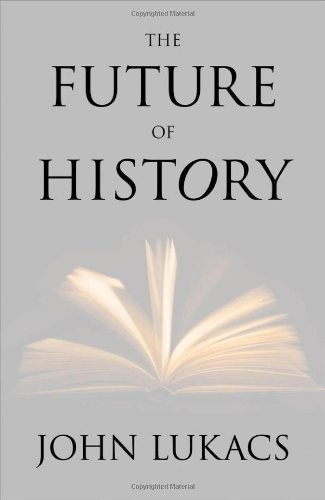

Most ebook files are in PDF format, so you can easily read them using various software such as Foxit Reader or directly on the Google Chrome browser.
Some ebook files are released by publishers in other formats such as .awz, .mobi, .epub, .fb2, etc. You may need to install specific software to read these formats on mobile/PC, such as Calibre.
Please read the tutorial at this link: https://ebookbell.com/faq
We offer FREE conversion to the popular formats you request; however, this may take some time. Therefore, right after payment, please email us, and we will try to provide the service as quickly as possible.
For some exceptional file formats or broken links (if any), please refrain from opening any disputes. Instead, email us first, and we will try to assist within a maximum of 6 hours.
EbookBell Team

4.1
30 reviewsFor more than sixty years, John Lukacs has been writing, teaching, and reading about the past. In this inspired volume, he turns his attention to the future. Throughout The Future of History, Lukacs reflects on his discipline, eloquently arguing that the writing and teaching of history are literary rather than scientific, comprising knowledge that is neither wholly objective nor subjective. History at its best, he contends, is personal and participatory.
Despite a recently unprecedented appetite for history among the general public, as evidenced by history television program ratings, sales of popular history books, and increased participation in local historical societies, Lukacs believes that the historical profession is in a state of disarray. He traces a decline in history teaching throughout higher education, matched by a corresponding reduction in the number of history students. He reviews a series of short-lived fads within the profession that have weakened the fundamentals of the field. In looking for a way forward, Lukacs explores the critical relationships between history and literature, including ways in which novelists have contributed to historical understanding. Through this startling and enlightening work, readers will understand Lukacs's assertion that "everything has its history, including history" and that history itself has a future, since everything we know comes from the past.